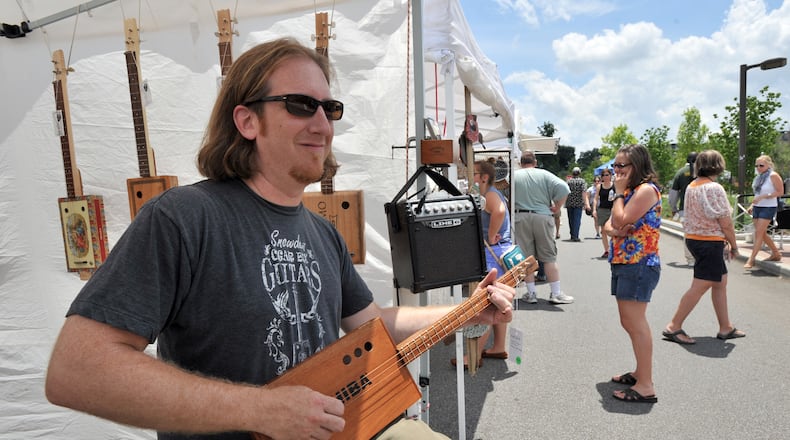Sure, you can use a library card to check out books to expand your literary knowledge.
But did you know you can also use it to advance your musical prowess?
That is, if you live in Fulton County. Here’s why.
The Atlanta-Fulton Public Library System has recently made cigar box guitars available for checkout at 10 branches.
The instrument surfaced more than a century ago when musicians who couldn't afford a guitar would craft one from an empty wooden cigar box, a discarded stick and baling wire for strings, according to The Cigar Box Museum in Pennsylvania. The poverty instrument is experiencing a resurgence due to the "success of old time music ... and the do-it-yourself spirit brought on by the Recession," the museum-in-a-tavern's website says.
That spirit is exemplified locally by Mike Snowden, a Marietta resident who builds, sells and plays cigar box guitars. Snowden Guitars, which sell out quickly, go for hundreds of dollars a pop.
READ | Every free thing you can get at Gwinnett libraries that isn't a book
READ | Elizabeth Cotten: Grammy-winning folk musician hid talent for decades
READ | Inside oddities dealer James Freeman's 'demented Pee-wee's Playhouse'
The three-string electric blues box slide guitars from the library system — which can be played with or without an amp — come with the guitar, a glass slide, an instructional booklet and a play-along audio CD with blues backing tracks.
They are available for check out at the following branches: Milton, Northeast-Spruill Oaks, Northwest, Buckhead, Peachtree, Metropolitan, Southeast, Adams Park, Wolf Creek and South Fulton.
Here are some tips from the library system:
• The guitar is an adult item, not intended for children
• It checks out for seven days
• It must be returned in the branch that it is checked out from.
• It can't be placed on hold
• It is $1 per day each day it is late
• The lost or damaged fee is $50
Like Intown Atlanta News Now on Facebook | Follow us on Twitter
More summertime news:
About the Author
Keep Reading
The Latest
Featured


